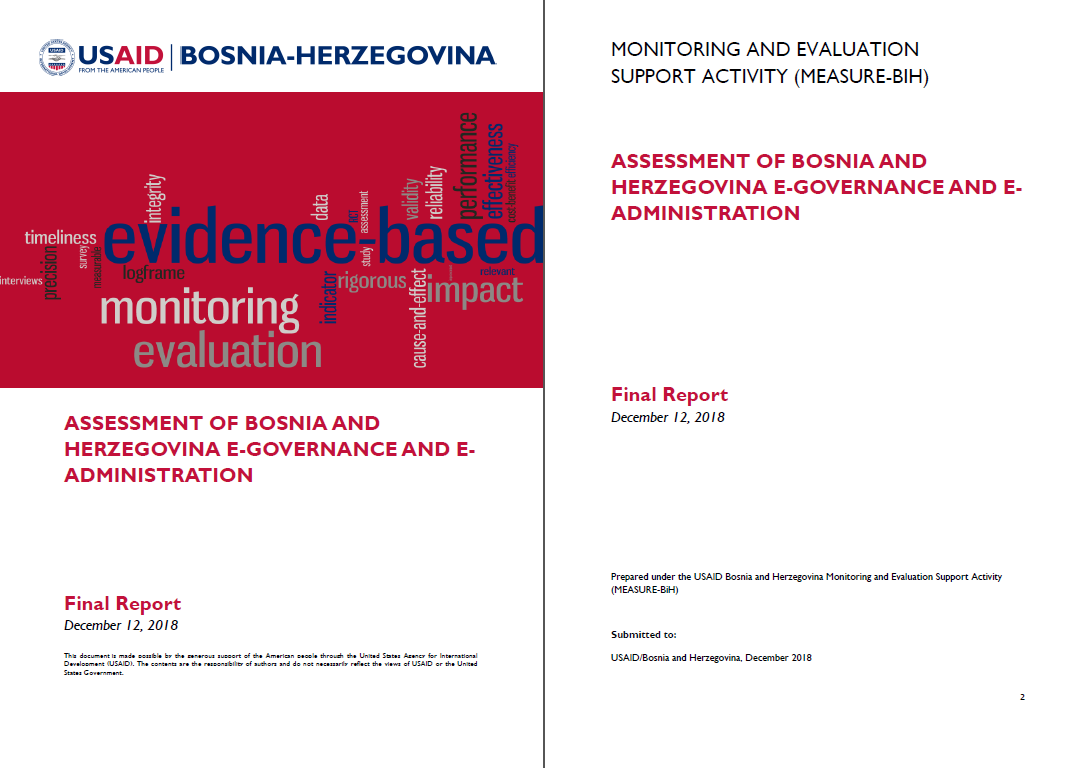
E-Governance and E-Administration in BiH Assessment
|
The BiH E-Governance and E-Administration Assessment was conducted by MEASURE-BiH. This assessment of BiH’s e-governance status covers the following assessment topics: (1) the current context under which the public administration of BiH provides e-services to citizens and the business community, (2) the most pressing issues in e-governance, (3) the ongoing or planned interventions of other stakeholders, and (4) the current gaps and needs for further technical assistance. The assessment also provides recommendations to the USAID Mission for further programming in e-governance and provision of e-services to assist citizens and businesses in BiH. The brief assessment of e-governance/e-administration in BiH addressed the following questions:
|
The assessment team used a mixed-methods approach based on an extensive desk review of relevant reports from international organizations and of local government documentation, focus groups with representatives of the business community, a mini-survey with private sector companies, and semi-structured interviews with 35 institutions and 70 key informants (KIs).
|





